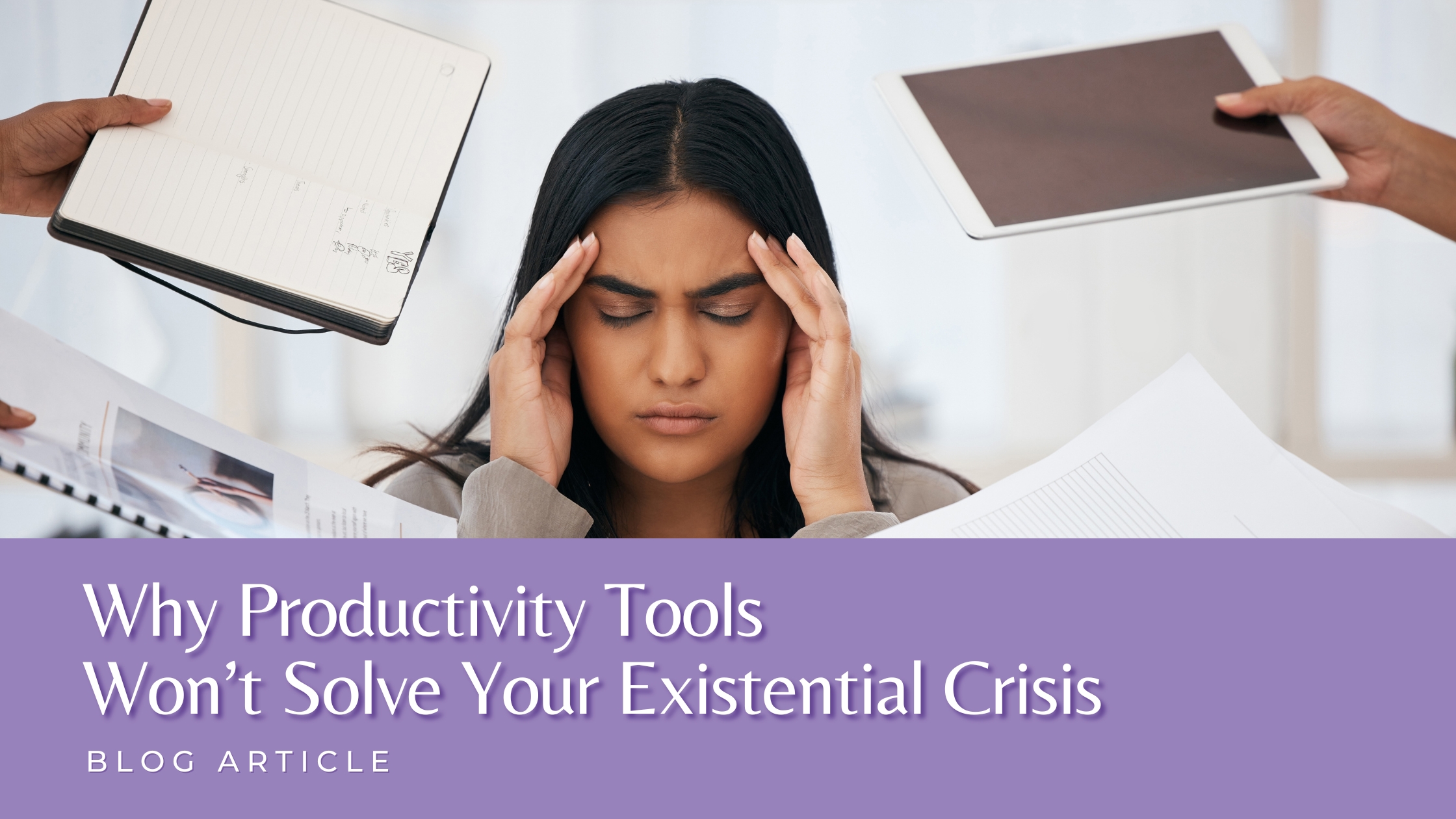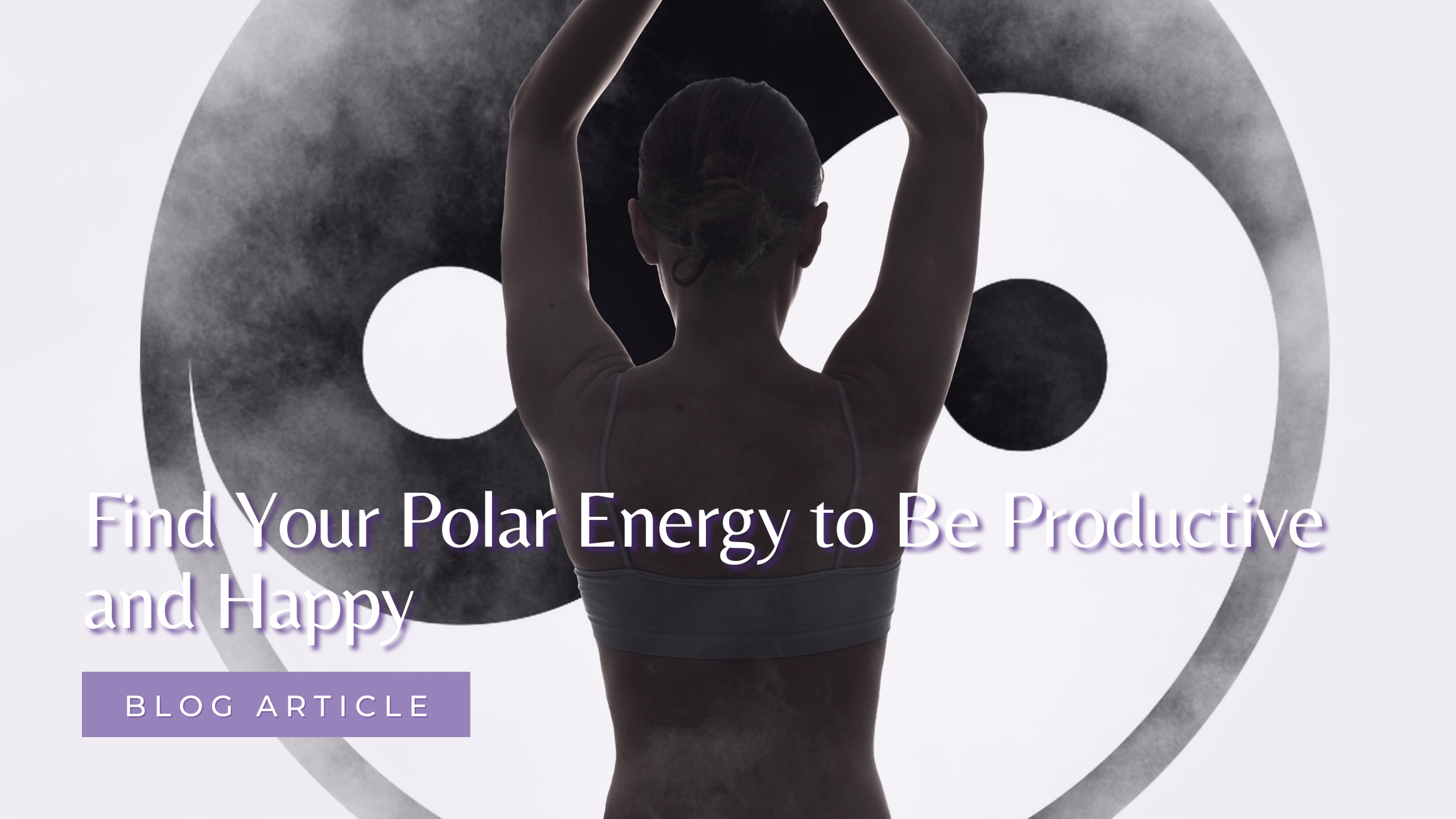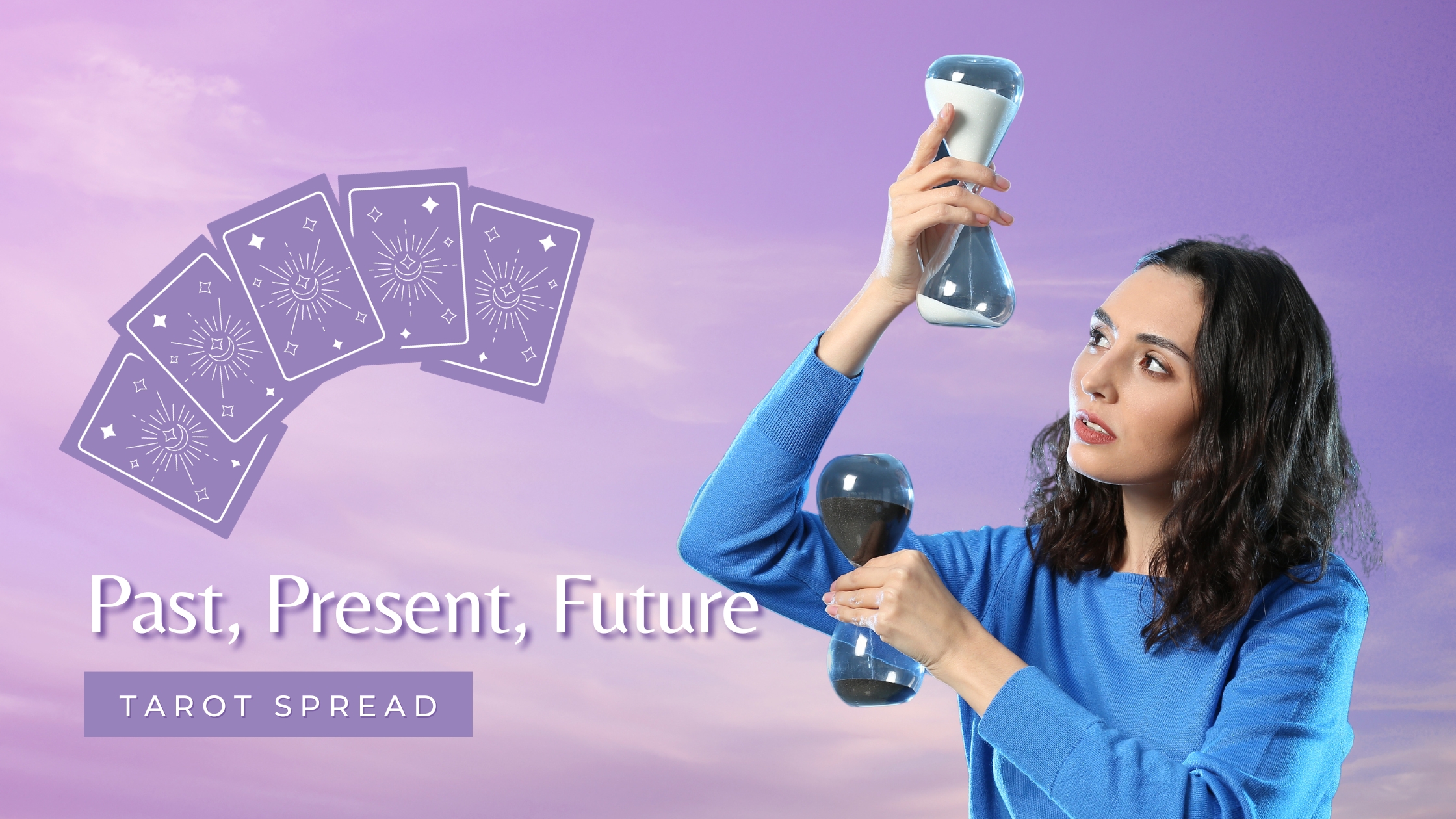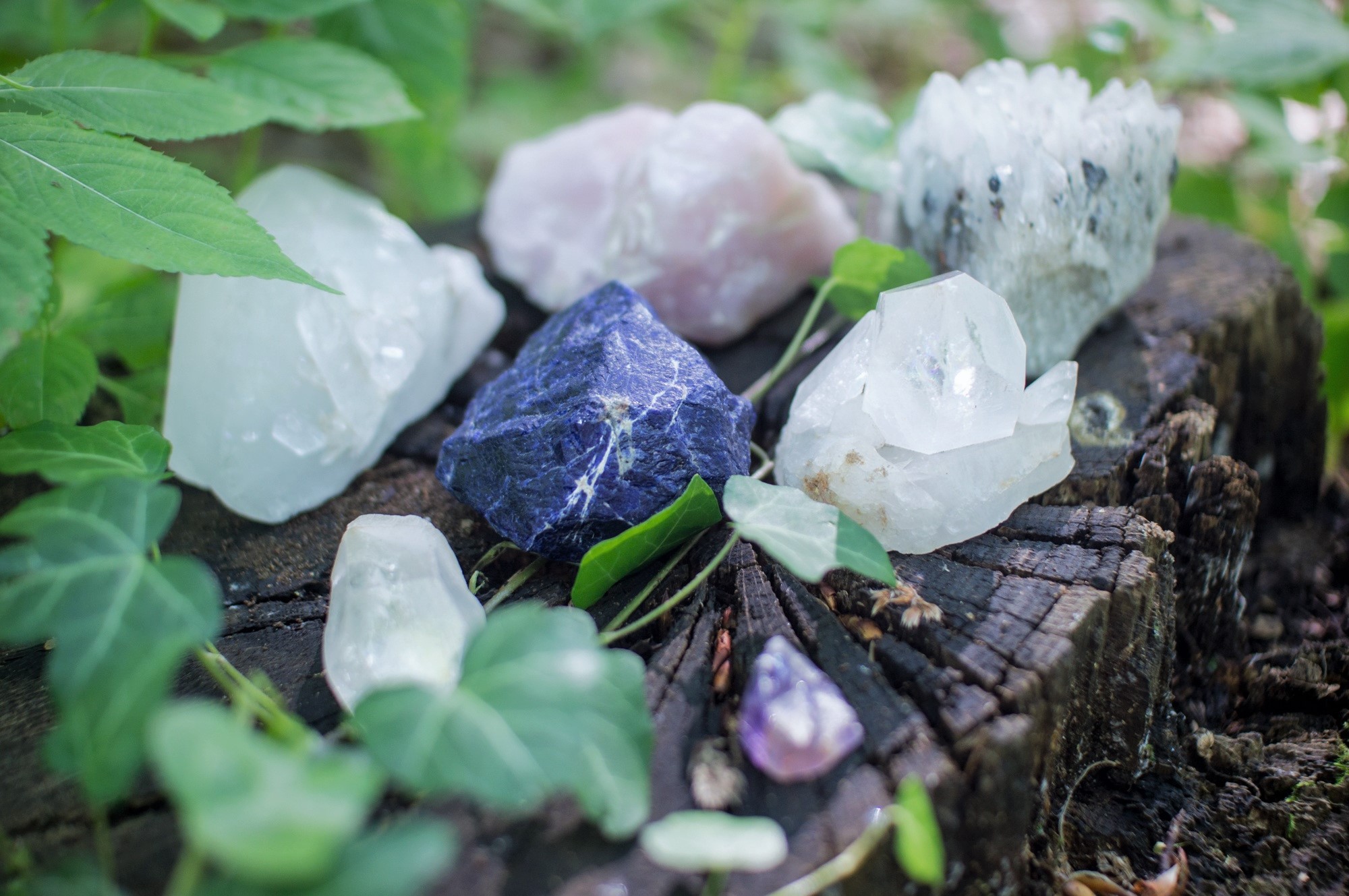Why Productivity Tools Won’t Solve Your Existential Crisis
I’m one of the few people in the world with more than twenty-four hours in my day.
And no – it doesn’t make life easier!
I have Non-24-Hour Sleep-Wake disorder. My day is about 24.5 hours long, sometimes much longer, because my brain can’t entrain to a normal schedule.
It’s a whole-life-disrupting disability. Think jet lag or daylight savings time, but for every day of the rest of my life.
Productivity is both my hobby and my toxic red flag. But when I suffered a concussion at twenty-seven and developed this rare sleep disorder, my entire life perspective radically changed.
I went through an existential crisis. And you know what didn’t solve the problem?
How well I managed my time.
The State of the Productivity Guru
There isn’t scientific proof yet if there’s a life after this one, but most people believe in something more. Perhaps there’s an afterlife or reincarnation.
Still, the uncertainty makes us nervous. If we waste the time we do have here on Earth, we ruin our chances of going to a better place. Or maybe there’s nothing at all!
Scary thought.
I’ve noticed that productivity gurus are inherently different from those who come from a spiritual background. They’re frazzled and concerned about wasting their mortal lives. Many of them ultimately find new age spirituality or Buddhism, but not before suffering their own existential crisis.
The average lifespan is about seventy years. If you’re lucky, you might live beyond that. But no matter how long you live, it doesn’t necessarily determine if that life was worthwhile.
This is why productivity gurus struggle in vain to find the perfect projects and the perfect process to give meaning to their days. And productivity tools like calendars and notetaking software? They witness them in awe as if they were sacred.
A Christian might even call this idolatry. I don’t think that’s an exaggeration on their part. How many times have you seen a productivity guru on social media try to reinvent their entire lives with the latest tool? They believe whatever new tool they’re trying will finally save them.
It’s their toxic red flag.
Don’t Try to Be Busy
Because of my sleep disorder, I can’t use an alarm clock to wake up. I also can’t accurately predict how my body will feel throughout the day, meaning I can’t schedule things with the holy grail of time blocking.
I’ve certainly tried though. I can usually last about two weeks before my body breaks down from burnout. And I always tell myself I won’t do it ever again… and do it again a few months later.
But I’ve gotten better at telling myself no and the time between attempts gets longer and longer. The reason? I now know that how I manage my time using productivity tools isn’t indicative of the quality of that time.
You can be productive and even accomplish something of value to others, but that doesn’t mean it was valuable to you. You can usually tell this by your thoughts during a burnout.
It’s one thing to feel tired, but quite another to feel as if your exhaustion was meaningless in the end. If you feel the first, your burnout is something you can recover from with rest. But if it’s the second, rest won’t solve the restlessness lurking within you.
Sometimes we seek to be busy to try and find meaning, but just working doesn’t make your life meaningful if it isn’t in alignment with something greater. That’s why productivity tools don’t solve the problem. The solution was never to be very productive but to be productive on the right tasks.
Productivity Can Make You a Crazy Person
Although I still make the mistake of trying productivity tools that won’t work for me, I did feel a shift in how I experienced burnout when I found my higher purpose (which is to teach others).
I can’t say this is what I wanted my higher purpose to be, but when I explored the possibilities of what I could do, I found immense fulfillment in teaching others over creating for others.
There was about a decade of my life where I wanted to be an artist. But no matter how many hours I spent trying to get better, and I did get better, I felt awkward when I held up my art to show others. Acknowledgment felt good, but it was fleeting, and it didn’t feel me with purpose even though it did fill other artists with purpose.
I then moved on to writing. And again, no matter how well I scheduled my time and tried productivity tools to assist in my efforts, I fell flat each time I tried a new productivity tool.
That feeling of emptiness when you try to do something productive isn’t a failure of the tool – it’s a failure of purpose. If you really want to do something, the tool doesn’t matter when getting things done. It just makes it easier. It doesn’t make it possible.
Feeling like you can never be productive enough means you don’t feel it’s possible to manifest your higher purpose. And you feel that way because you’re out of alignment. Purpose isn’t achievement, but right action.
An existential crisis is where your purpose isn’t aligned with how you’re living life. What you’re doing feels absurd. You feel even more absurd if you’re successful at doing the wrong things consistently.
That’s why you burn out.
It’s madness.
Know Your Relationship to the Universe
One facet of productivity advice often isn’t considered holistically: prioritization. People look at their tasks and try to sort them based on relevance to their current top goals or how urgent it is compared to everything else.
This is like looking at a forest for the trees. You try to name each individual tree when tourists just want to know the name of the forest so they can find it on a map.
People look at productivity tools to solve their existential crisis because they think the minutia of how they live their lives is a stand-in for purpose. So if they perfect that minutia with quantity, they erroneously believe they’ve solved their problems.
Consider yourself a task in the universe. What project is it relevant to and are you treated with urgency? Or have you put yourself in the wrong project bin and considered your real purpose low priority?
By all means, use productivity tools, especially the ones that work for you best, but understand they don’t solve the bigger questions in life. You need to find out what you were meant to do and organize your life around that instead of just getting things done.
I have more than 24.5 hours in my day and that’s not relevant to why I’m here. How well I manage my time also isn’t the point. It’s what I choose to do with that time.
Life needs to feel like destiny, not busy work.
Did you like this? Let me know! And don’t forget to subscribe to my newsletter to receive e-mails when new articles and tarot pick a cards are published. If you really liked this article, you can also tip me on Ko-fi.







Thank you so much, this is so relatable with me as I also have a sleep disorder, although different, and work in 9 to 5 job. I also like tarot and writing 😁 This is really helpful to consider about my purpose to work. Thank you.
I’m really happy it could help, Farrah! It’s really difficult to live with a sleep disorder, but I hope that you find a schedule that works better for you in the future! 🙂
Dear Emmarie, I have experienced jet lag and saving time, it feels weary and somewhat like a hangover. Things slow down.
Thank you for the analysis and conclusions. Well written and well argumented.
How do we find out what we were meant to do? Is it silent meditation, or past lives analysis? I don’t know and have noone to ask.
Feeling overwhelmed after a week of working extra hard, and there is no end next week. Staying mindful.
Are our relationships not the key to life? How we relate to the world and each other.
I did learn of Buddhism over last two years (a lot of listening and practicing Vipassana ) and it has helped me to disenchant from the world. At the same time, it does raise the question of where I go from here.
Blessings, be happy, A.
There are two aspects of happiness. The first is fulfillment: something that makes you content with the scope of your life. The second is joy. These are the moments of happiness you experience, like laughing at a joke or eating your favorite food. If you only solve one, you won’t be happy. That’s why someone can’t go 100% in on their higher purpose. They need joy from the daily lives too.
Relationships usually comprise of one or both categories and many people report feeling fulfilled doing multiple things even if they have a higher purpose. Many people fall in love AND have a dream career AND have kids. So relationships will bring you fulfillment and purpose even if it’s not your higher purpose. Work towards those too.
Since most if not all higher purposes I encounter deal with helping other people in some way, even if it’s something like creating music other people love, relationships are pretty much key to life.
One thing to ask yourself is what can you do to help other people? What problem can you solve? What problem would you LIKE to solve for other people?
Pretty much everyone figures this out in different ways so you can experiment until you feel like you’ve found a purpose to work towards. Don’t try to find the perfect purpose. Look for the one right now that excites you the most. A person’s higher purpose can change or be modified by life’s circumstances.
You usually already know what it could be because it’s going to be related to one of your interests or personal skills. It might be related to a responsibility you have, but aren’t emphasizing more. What spiritual practices do is help detach you from unrelated worries so you can get in touch with your intuition and unlock it. Past life regressions can help, but only because you recognize yourself and your interests in your past lives.
Meditation basically works to unlock your intuition and inner voice.
But what if you can’t find it using these methods? This happens. I had no idea that teaching was my higher purpose because I never had the opportunity to teach others until midway through college. There was no way for me to use my intuition to figure this out as I hadn’t had experience to compare it too. Even if a tarot reading had told me this was my higher purpose, I would’ve ignored it. This may be true for you right now.
Explore things. Try things out. Even use personality tests. Eventually a purpose (and an associated job or hobby) will be presented to you and you’ll start to resonate with it. But only when you have experience with it, however small. Go in the direction of what excites you and pursue the opportunities that come your way.
Example: a fast food worker doesn’t know what they want to do in life. But they discover they’re really interested in art. They explore artistic mediums and realize they love woodworking. They try it out, but hate building furniture and love sculpting figurines. Eventually they start selling figurines on Etsy, but end up specializing in custom made chess pieces because it just feels right due to their other passion for chess.
During this time the person may have gone to art school or started doing art commissions for others. Maybe they became a graphic designer to make ends meet. The trick is to not feel so intent on “finishing things you start” that you miss out on future opportunities. This is called the sunk cost fallacy.
Part of pursuing your higher purpose is being okay with letting things that don’t match it anymore go. Part of your current frustration may be that you’re still holding onto things you no longer care for because you feel like you must keep doing them. It’s okay to change your mind. It’s also okay to change your mind gradually.